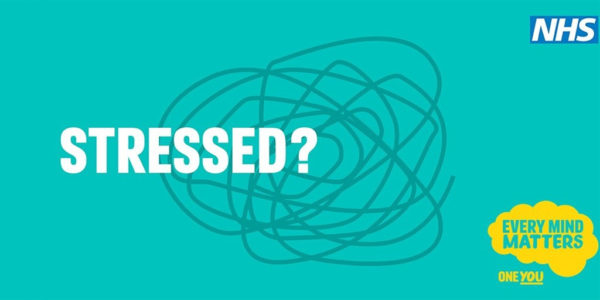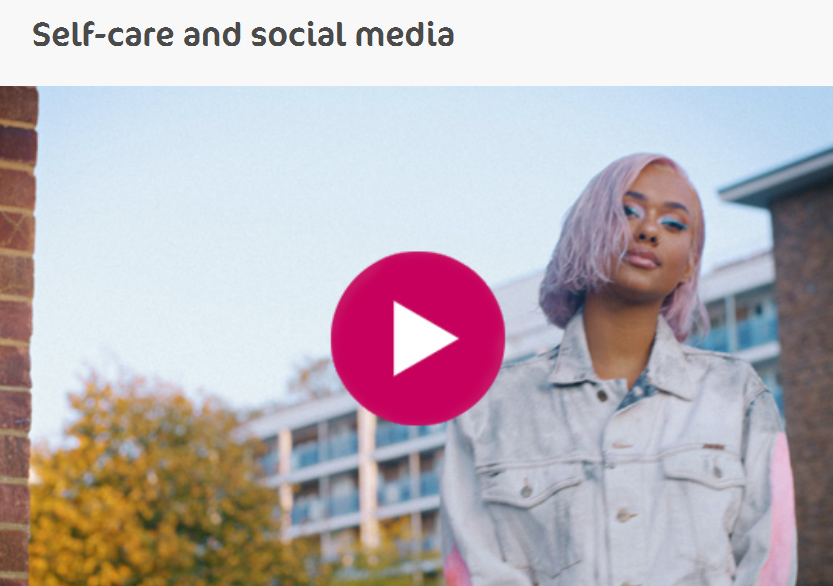The NHS has launched its Every Mind Matters campaign aimed at supporting children’s and young people’s mental health. It’s a fantastic resource with a lot of useful advice and tips, and we recommend you check it out.
We are living through uniquely challenging times. In fact, some experts have suggested that mental health challenges will be the “second pandemic”. If you’re finding this year hard or having new or intensified mental health struggles, you’re far from alone.
You might be feeling depressed, isolated, lonely, frightened, or anxious about the future. All of these feelings, and so many more, are normal and to be expected.
Every Mind Matters is a fantastic wellbeing resource with a lot of useful advice and tips, and we recommend you check it out.
Here’s a summary of some of the resources that are available to help young people manage their mental health during COVID-19 and beyond.
Loneliness support
Whether you’re still shielding or self-isolating, or simply finding it hard to see your family and friends right now due to the pandemic, you might be feeling very lonely. If you used to work with others and are now working from home, you might also be missing the social interactions you enjoyed at work.
Every Mind Matters points to a useful section on practical tips for combating loneliness during the pandemic. From ways to spend time with loved ones in a safe, socially distanced fashion, to ways to connect online and stay busy, you’ll find tonnes of tips to help you manage social distancing without becoming isolated.
Our favourite tip: volunteer to help others to beat loneliness. Whether you sign up for Age UK’s telephone friending scheme or help deliver COVID-19 testing kits, there are numerous ways to help others during this time.
Sleep tips
Sleep is incredibly important, and not getting enough can have a huge impact on your physical and mental wellbeing. However, you might be struggling to sleep right now due to anxiety, stress, or depression.
The sleep section addresses all the common issues associated with falling asleep and staying asleep, and offers practical strategies on creating a restful environment, getting into a routine conducive to good sleep, and switching your mind off from worrying so that you can sleep.
Our favourite tip: if you can’t sleep, don’t try to force it. If you’re struggling to drop off, do something relaxing like reading a book or listening to calm music until your body feels ready to fall asleep.
Working from home tips
Though some workplaces and offices are now starting to reopen, many people are still working from home right now and will be for the foreseeable future. If this is you, you’ll need to create an optimal environment for working from home to ensure your productivity and health don’t suffer.
Whether you need help with setting and maintaining a routine, setting boundaries with your colleagues or the people you live with, or creating a functional home workspace, you’ll find it all in this section.
We spend a lot of our waking hours at work, so creating a happy and healthy working routine can make a huge difference to mental health.
Our favourite tip: schedule a digital coffee break or lunch with a colleague to help you stay connected (or meet in person if you can, following social distancing guidelines!)
Tools for mental wellbeing at home
If you’re worrying about your finances, health, or loved ones, that’s to be expected. This section provides ten top tips to support your mental wellbeing while staying at home during the pandemic.
Tips include knowing your employment rights and any benefits you might be entitled to, talking about your worries, and getting some stress-busting exercise. Each tip includes links to other additional resources, such as recommended helplines you can call if you need some extra support.
Our favourite tip: don’t stay glued to the news! “Doomscrolling” will kill your mental health quicker than anything. Engage consciously, and only get information from reputable sources.
What to do if you’re worried about COVID-19
The worry and panic you might be feeling about COVID-19 and what it means can be overwhelming. Everyone reacts differently, and wherever you fall on the fear spectrum is normal and okay. However, if panic is taking over your life, you need to take steps to mitigate it for the sake of your wellbeing.
This section provides ten strategies that will allow you to think more clearly and not be consumed by worry.
Our favourite tip: stick to the facts. There’s a lot of misinformation out there, much of it designed to whip up unnecessary panic.
Video resources
The Every Mind Matters campaign has provided six free videos to help you manage your mental health in the current reality:
- Self-care and social media, to help you avoid getting stressed out by all the extra time many of us are currently spending online.
- Sweat, which talks about using exercise as part of a self-care routine and sharing exercise goals with friends so you can support each other.
- Dealing with unhelpful thoughts, to support you with the intrusive thoughts that might pop up as schools reopen and you navigate a return to the classroom.
- The Worry Tree walks you through a simple exercise for managing negative thought patterns and stopping yourself spiraling. It helps you work out what you can change and how to do so, and what you need to let go of.
- Sleep, in which a group of young people discuss the problems they face when they don’t get enough sleep, and the strategies they use to sleep better.
- Dealing with change, to help you relax and de-stress at a time when things are changing rapidly and many of us feel out of control.
Further help and support
The Every Mind Matters page for young people also lists a host of useful resources you can access if you need additional support.
You’ll find helplines you can call if you need someone to talk to in confidence, tips on social distancing and socialising safely, resources to support you with everything from abuse at home to financial worries due to COVID-19, and support for specific groups such as LGBTQ+ people, those with disabilities, young Black people, and young carers.
Support is out there
Whatever your struggles are, you’re not alone. There is help out there, so please don’t be afraid to take advantage of it. There is no shame in needing extra support.
If you don’t know where to begin, Every Mind Matters for young people is a fantastic hub that will guide you to the most appropriate resources for your needs.









